Robert Mugabe celebrates 90th birthday as Zimbabwe's international pariah
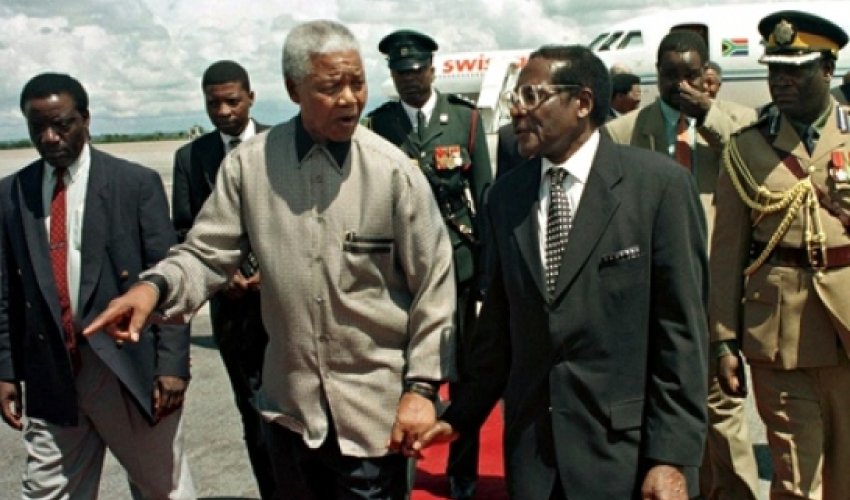
In a white tent graced by lilies and orchids, the two men who defined politics in southern Africa came face to face for the last time. As Nelson Mandela lay in the open casket, his features both familiar and strange, a crisply suited Robert Mugabe gazed down at him through his dark glasses for a long, still, silent moment.What ran through his mind? Was he awed by the thousands queuing behind him to see South Africa's first black president lie in state? Did he heed the global outpouring of adulation that elevated Mandela, who died aged 95 last December, to virtual sainthood?In that moment, did the president of Zimbabwe reflect on his own legacy and the cold judgment of history?Mugabe turns 90 on Friday. Like Mandela, he was a black revolutionary, a prisoner turned president who avowed racial reconciliation and became a darling of the west. Like Mandela, he lost his father around the age of 10, became politically active at South Africa's Fort Hare University, and suffered the death of a son. Like Mandela, he bears the stamp of British colonialism but remains a hero to many in Africa.Yet whereas Mandela relinquished power after one term of five years, Mugabe is now in term seven and year 34. Whereas Mandela's 90th birthday was celebrated around the world – he spoke to rapturous applause at a concert in London's Hyde Park – Mugabe reaches the milestone as an international pariah, his country's economy again teetering on the edge.Two great questions dominate the story of Africa's oldest leader. One is the stubborn mystery of how a giant of its liberation movements, an intellectual who showed forgiveness and magnanimity years before Mandela emerged from jail, could turn into the living caricature of despotism. The other is what his eventual demise will mean for Zimbabwe, a beautiful yet benighted land that has known no other leader since gaining independence from Britain.While South Africa is now under its fourth democratic president in two decades, Mugabe has imposed himself on a nation's soul. The culture of the 13 million Zimbabweans he rules is one whose gentleness and articulacy seem at odds with the catalogue of torture and thuggery. This is a fertile land with the best climate in the world that has been brought to the edge of ruin.There are clues, but no easy answers, to the making of a dictator.Mugabe was abandoned by his father, who remarried and started a new family; he suffered the deaths of a three-year-old son and a compassionate wife; then there was his warped fascination with Britain.Mugabe rose with quiet determination and ruthlessness. Raised a strict Catholic and educated at missionary schools, he went to the racially inclusive but eurocentric Fort Hare University in South Africa for the first of his seven degrees. It was here that he encountered the African National Congress (ANC) youth league and became politically aware. "My eyes were opened," he later told the South African political economist Moeletsi Mbeki, who lived in Zimbabwe during the 80s.Mugabe became a teacher in Ghana before returning home to what was then Rhodesia in 1960. His political activism earned him a 10-year jail term for "subversive speech", after which he fled to neighbouring Mozambique to lead guerrilla forces in a protracted war against Ian Smith's government that left 27,000 dead.The 1979 Lancaster House agreement in London brought independence to Zimbabwe.Mugabe and Lord Carrington, the British foreign secretary, were nominated for the Nobel peace prize but, unlike Mandela and FW de Klerk just over a decade later, did not win.Mugabe was told he had "the jewel of Africa" in his hands. He announced a policy of reconciliation and invited whites to help rebuild the country. "If yesterday I fought you as an enemy, today you have become a friend," he said to them. "If yesterday you hated me, today you cannot avoid the love that binds me to you."Last December, reflecting on Mandela's death, Mugabe claimed: "We established the principle of national reconciliation at independence in 1980; they [South Africa] took it over and used it as a basis to create what they have now as the rainbow nation."Mugabe initially ran a coalition government with fellow freedom fighter Joshua Nkomo, before the pair fell out. Then came the biggest counter-argument to the theory that Mugabe is a good man who has been slowly corrupted by power: Gukurahundi, or "the rain that washes away the chaff before the spring rains".As early as 1982, his North Korean-trained Fifth Brigade crushed an armed rebellion by fighters loyal to Nkomo, leader of the minority Ndebele tribe, in the province of Matabeleland. At least 20,000 people died in vicious ethnic cleansing.Few in the west noticed, or wanted to. They preferred to see an economy that was growing, as agriculture boomed and Mugabe built clinics and schools, turning Zimbabwe into one of the healthiest, best educated and most hopeful countries in Africa.He was knighted by the Queen in 1994 then stripped of the honour, an insult he never forgave.The former colonial power shaped his dress code, manners and vision. "Cricket civilises people and creates good gentlemen," he once said. "I want everyone to play cricket in Zimbabwe; I want ours to be a nation of gentlemen."But the optimism began to sour in 1997, when Mugabe gave in to pressure for pensions from war veterans waging violent protests. Trade unions and political activists began organising what would become the first viable political threat to Mugabe, the Movement for Democratic Change (MDC). But it was partly bankrolled by white farmers, which allowed Mugabe to whip up militancy against it.In 2000, Mugabe began a land reform programme, billed as an attempt to correct the colonialist legacy by giving white-owned farms to landless black people. Many saw it as a crude attempt to sideline the MDC, which commanded wide support among farm workers.White farmers were forcibly evicted by self-styled war veterans, many too young to have fought in the liberation war, and their properties handed to cronies in Mugabe's party or black Zimbabweans who lacked the skills and capital to farm.The ensuing chaos undermined the economy, which shrank to half the size it had been in 1980. The "breadbasket of Africa" became dependent on foreign aid to feed its masses. Hyperinflation turned the national currency into a standing joke – a hamburger cost Z$15m – and it had to be abolished. Schools and hospitals fell apart, once eradicated diseases returned, and life expectancy crashed from 61 to 45. Millions of people moved to South Africa and other countries in a devastating flight of intellectual capital.The political environment also became hostile, with activists and journalists persecuted, jailed or murdered. More than 200 people died in violence around the 2008 election. MDC leader Morgan Tsvangirai, widely seen as the real winner, was forced to join Mugabe in an uneasy power-sharing agreement.Asked how his rival will be remembered, Tsvangirai said in a 2011 interview: "The transformation of the man is one of concern to himself and everyone. He has moved from a hero to a villain because of the actions and because of his incumbency over the last 30 years in which there has been an erosion of his legacy."When people look back they will say his legacy is one where he started very well but ended up disgraced because he eroded his own legacy by collapsing a once vibrant economy, by violence, by appearing to tendencies of dictatorship and one-man rule. That's what his record will reveal."Tsvangirai served as prime minister until his defeat by Mugabe in what he claims was a fraudulent election last year. He added: "The turning point of Mugabe was when he lost an election for the first time, when he lost the support of the people, when it dawned on him the people no longer supported him. Then he became reactionary. He reacted to the people's will by enforcing his will on the people."Mugabe seemed to have one thing in his armoury that Mandela lacked: a thirst for power and desire to hold on to it at all costs. Denis Norman, a white farmer who became his agriculture minister from 1980 to 1985, said: "I have always maintained that his driving force was the desire to control and remain in power, and once achieved to remain in that position. I am well aware of the allegations of corruption that have surrounded him, but without any evidence, as opposed to rumours, I don't believe that the creation of wealth was ever his motive; the same cannot be said for many of those who surround him."The softer side of his nature was rarely if ever seen, but it certainly used to exist, along with a warm sense of humour, but I believe he guarded both very carefully in case they are interpreted as a sign of weakness."Norman added: "I don't think history will judge him favourably. He will be remembered for all the events that have taken place during his latter period in power: the land invasions, the rigged elections, the beatings in the townships and the ineptitude of the courts."Another insight is offered by Simba Makoni, who toured Europe with Mugabe in the late 1970s and served in his government. "I know of two Mugabes: the early Mugabe and the later Mugabe," he said. "The first Mugabe of the liberation struggle and the first 10, 15 years of independence isn't the Mugabe we have today."I didn't know him to be cruel, I didn't know him to be uncaring in the time that I worked closely with him in the early years. But certainly the Mugabe of 2000 going forward is very different from the Mugabe of 1980 as I knew him."The status he deserves of a national hero on the basis of his role in the liberation of the country, his place in the leadership of the country in the first decade and a half, unfortunately has been totally wiped out by the last decade."Makoni, a former finance minister, identifies three factors that led to the change in the leader's character: the accord with Nkomo that effectively destroyed any meaningful opposition – "it removed the only alternative to Mugabe so he had no reason to look over his shoulder"; his switch from the office of prime minister to president in 1987; and the death of his Ghanaian-born wife Sally in 1992. (He subsequently married his secretary, Grace, 40 years his junior.)Yet all of these events happened after the Gukurahundi massacres. Makoni conceded: "I accept, yes, you won't find a rational explanation why a caring, compassionate leader would allow 20,000-30,000 of his citizens to be annihilated under the auspices of Gukurahundi. That notwithstanding, I would say the greater part of Mugabe would come through as a caring, compassionate, committed leader who wanted the best for his people – with the deviation or the aberration of Gukurahundi."Mandela was a self-confessed anglophile and comfortable in his skin. But many of those who know his Zimbabwean peer describe an unresolved inner conflict between Mugabe the African nationalist and Mugabe the son of British colonialism.The late Heidi Holland, who interviewed him for her book Dinner with Mugabe, described him as having tears in his eyes when discussing the royal family. Tendai Biti, the former finance minister, called him "a British gentleman in a proper Victorian sense". Last month, Mugabe himself joked that he still measured distances in miles, unlike most Zimbabweans who use kilometres. "I am very British, you know," he said. "I am English again, don't forget."Makoni, who quit Zanu-PF to lead his own party, Mavambo Kusile Dawn, after a failed attempt to defeat Mugabe, said: "I would say Britain is a passion, not an obsession. He loves the place and its character, its mannerisms."This man commissioned what he said was the best state-of-the-art dairy south of the Sahara three years ago. Among dairy cows, wet cattle dung and all that, he was in a tie and jacket. Everybody else around him, the engineers and workers, were all in overalls and gumboots. He was in a tie and jacket and suit, opening a dairy. That's him: he loves the British, he loves the English way of all life."Mugabe lost his honorary knighthood in 2008 and was subjected to targeted sanctions that prevented him travelling to Britain and other countries. He could no longer shop on Savile Row for his beloved suits and descended into what Tsvangirai describes as an anti-British paranoia. As the years wore on, he became increasingly bellicose in denouncing Britain while repeating the mantra: "Zimbabwe will never be a colony again."Makoni said: "All this vituperation, my reading of it, is like grapes are sour. My sense is all the anger about the illegal sanctions and all that … the fact that he hasn't, for a decade or plus, been able to go to London, I think it irked him a lot."But asked by the Guardian last year if he hopes to visit London again some day, Mugabe retorted: "Why? I've nothing to do in Britain, actually."Arguably his last act of vandalism is his refusal to brook a succession debate in the bitterly divided Zanu-PF. Some fear that he is the one holding the apparatus of terror in check and his death will open a Pandora's box. They warn that possible successors, such as Emmerson Mnangagwa, known as the crocodile, may crack down on opposition with renewed and even bloodier zeal.One civil society activist, who did not wish to be named, said: "People won't dare celebrate Robert Mugabe's death. Zanu-PF still has a lot of support. I suspect they will try to manage transition as constitutionally as possible; even the military know a coup would not be acceptable to the region."Whoever comes to power next is more likely to venerate than traduce the late father of the nation. "I think he will have a legacy more positive than negative in the big picture," the activist added. "Much as I detest the bugger, he's done some remarkable things for the country. Yes, there was Gukurahundi, but he took health and education to the whole of Zimbabwe. He'll be tarnished by the last 15 years but history will be rewritten and other people will be blamed."In a South African TV interview last year, Mugabe responded to the critics of his land reform programme. "They will praise you only if you are doing things that please them," he said. "Mandela has gone a bit too far in doing good to the non-black communities, really in some cases at the expense of them … That's being too saintly, too good, too much of a saint."Two political titans, two sides of the same coin. Today Mandela is revered as the greatest statesman Africa has produced; Mugabe is seen, by the west at least, as its fallen angel. Allister Sparks, a veteran journalist, recalled a conversation with Mandela: "We got to talking about Mugabe, whom he really profoundly disliked, and I think it was reciprocated. He said, 'You know Allister, the trouble with Mugabe is that he was the star – and then the sun came up.'"(theguardian.com)ANN.Az
Similar news
Similar news
Latest news 
More news 
























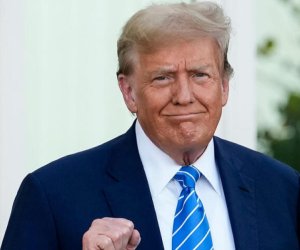
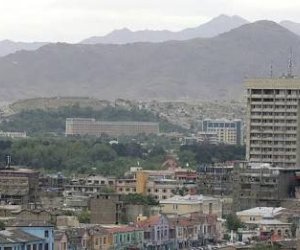


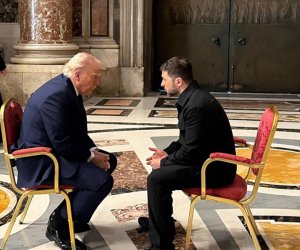
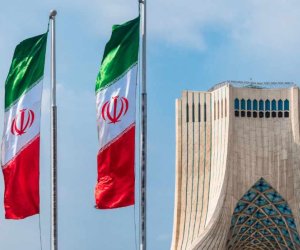
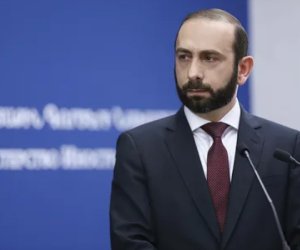
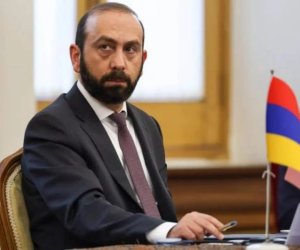
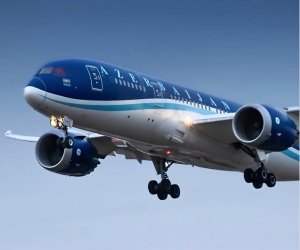


 Photo
Photo 



 Video
Video 

